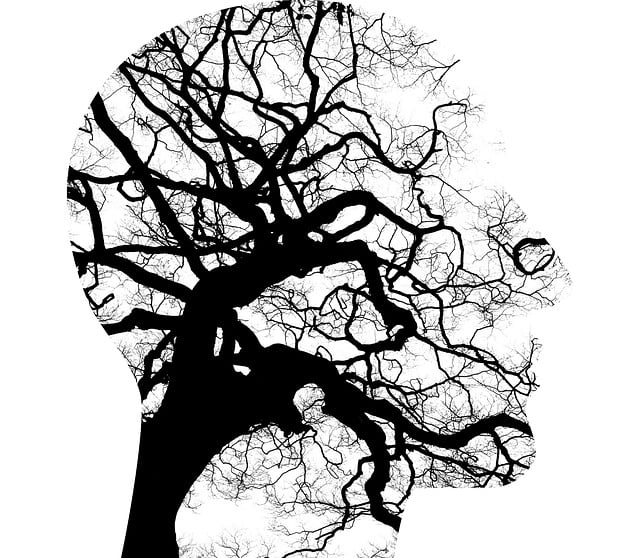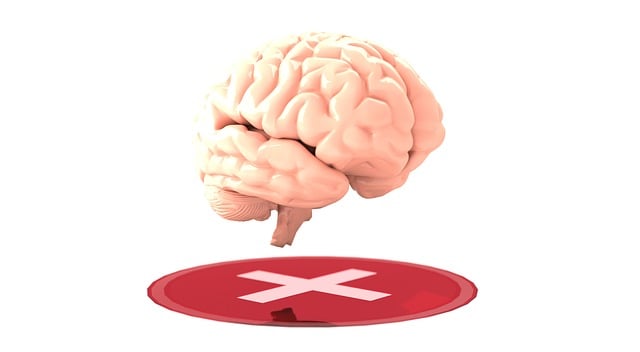Mental wellness self-assessment tools play a pivotal role in empowering individuals to proactively manage conditions like Lakewood Panic Disorder and Anxiety Attacks. Through techniques such as journaling and self-awareness exercises, these tools help users gain insights into their thoughts, feelings, and behaviors. By identifying triggers and developing coping strategies, individuals cultivate resilience and control over their well-being, becoming their own therapists. In today's fast-paced world, where stress levels often lead to anxiety and panic attacks, early identification through self-assessment is crucial for effective intervention. A comprehensive Mental Wellness Podcast Series can further educate the public about managing these challenges, promoting positive thinking, and developing coping skills. These tools, when designed with cultural sensitivity and adaptability, enhance mental health education programs. Integrating evidence-based practices like crisis intervention techniques and CBT ensures personalized resources tailored to individual needs, benefiting both users and mental health professionals. The development process involves meticulous indicator formulation, clinical trials, and user feedback for continuous improvement, making these tools effective in treatments like Lakewood Panic Disorder and Anxiety Attacks Therapy.
Mental wellness self-assessment tools play a crucial role in identifying and managing conditions like Lakewood Panic Disorder and anxiety attacks. This article explores the development of such tools, focusing on understanding their importance, identifying the need for effective therapy (such as Lakewood Panic Disorder treatment), and outlining key components for success. We delve into the process of integration, testing, and continuous improvement to ensure these tools enhance mental health support, particularly in managing anxiety attacks.
- Understanding Mental Wellness Self-Assessment Tools
- Identifying the Need for Lakewood Panic Disorder Therapy
- Key Components of Effective Assessment Tools
- Integrating Anxiety Attacks Management Strategies
- Development, Testing, and Continuous Improvement Process
Understanding Mental Wellness Self-Assessment Tools

Mental wellness self-assessment tools play a crucial role in empowering individuals to take charge of their mental health. These tools are designed to help people gain a deeper understanding of their thoughts, feelings, and behaviors, which is essential for managing conditions like Lakewood Panic Disorder and Anxiety Attacks. By assessing one’s mental wellness, individuals can identify triggers, develop coping strategies, and make informed decisions about their well-being.
Self-assessment tools often incorporate various techniques such as journaling, self-awareness exercises, and reflecting on symptoms to offer a comprehensive view of mental health status. They promote the application of Mind Over Matter principles, where one can learn to manage stress, challenge negative thoughts, and cultivate resilience. This proactive approach to mental wellness encourages individuals to become their own therapists, fostering a sense of control and self-efficacy in managing conditions like anxiety disorders.
Identifying the Need for Lakewood Panic Disorder Therapy

In today’s fast-paced world, mental wellness is a paramount concern, with Lakewood Panic Disorder and Anxiety Attacks Therapy emerging as a crucial aspect for many individuals. The relentless demands of modern life often lead to heightened stress levels, causing some people to struggle with anxiety and panic attacks, which can significantly impact their daily functioning. Recognizing this growing need, the development of effective self-assessment tools is essential to aid in early identification and intervention. These tools play a pivotal role in encouraging individuals to seek support for their mental health, specifically targeting common disorders like Lakewood Panic Disorder.
The importance of addressing anxiety cannot be overstated, especially when it evolves into debilitating attacks. Through the production of a comprehensive Mental Wellness Podcast Series, professionals can reach a wider audience, educating them about managing and coping with these challenges. Promoting positive thinking and developing effective coping skills are integral parts of this process, offering practical strategies for individuals to navigate their mental wellness journeys. By combining such initiatives with self-assessment tools, we can foster an environment that prioritizes mental health awareness and encourages proactive measures towards overcoming anxiety disorders, including Lakewood Panic Disorder.
Key Components of Effective Assessment Tools

Effective mental wellness self-assessment tools should incorporate several key components to ensure they are both comprehensive and user-friendly. Firstly, a robust assessment tool must be capable of evaluating various aspects of an individual’s mental health, including anxiety levels, depression symptoms, stress management skills, emotional regulation abilities, and overall psychological well-being. For instance, tools designed for individuals experiencing Lakewood Panic Disorder and Anxiety Attacks should include specific questions or scales to assess the frequency and intensity of panic attacks, avoidance behaviors, and related cognitive distortions.
Additionally, a high-quality assessment tool should facilitate self-reflection and promote emotional awareness by providing clear explanations and feedback following the evaluation. This can be achieved through the integration of educational components that offer insights into mental health conditions, coping strategies, and available treatments, such as those explored in the Mental Wellness Podcast Series Production. Furthermore, tools designed for a diverse range of users should emphasize cultural sensitivity and adaptability to cater to different backgrounds, ensuring inclusivity and validity in their assessments. Incorporating features like customizable questions or modules can enhance the tool’s effectiveness in various settings, including clinical practices, educational institutions, and corporate wellness programs, ultimately contributing to improved Mental Health Education Programs Design.
Integrating Anxiety Attacks Management Strategies

Integrating effective anxiety attacks management strategies is a critical component of developing comprehensive mental wellness self-assessment tools. For individuals struggling with conditions like Lakewood Panic Disorder, these tools can provide valuable guidance and support. Crisis intervention techniques, such as deep breathing exercises and cognitive behavioral therapy (CBT) methods, are essential components to include. These strategies empower users to recognize and manage symptoms during panic episodes, fostering a sense of control and reducing anxiety over time.
Leveraging the Mind Over Matter principles, self-assessment platforms can offer personalized resources tailored to an individual’s unique needs. Risk management planning for mental health professionals is also enhanced by integrating these tools, as they enable practitioners to provide targeted interventions and track progress more effectively. By combining evidence-based practices with user-friendly interfaces, mental wellness assessments can significantly contribute to improving overall mental health outcomes and well-being.
Development, Testing, and Continuous Improvement Process

The development of effective self-assessment tools for mental wellness is a multifaceted process that requires careful planning and iterative improvements. It begins with defining the specific areas of mental health to be assessed, such as anxiety, burnout, or resilience. Researchers and professionals collaborate to create indicators, questions, and scoring systems aligned with recognized psychological frameworks and theories. This initial stage involves extensive literature review and expert consultation to ensure cultural sensitivity and validity.
Once developed, these tools undergo rigorous testing in controlled environments. Clinical trials involve a diverse participant pool to validate their reliability and accuracy. Feedback from users is meticulously collected and analyzed to identify areas for enhancement. Continuous improvement is at the heart of this process, where ongoing user feedback and research findings guide modifications that refine the tool’s effectiveness. This iterative approach ensures that self-assessment tools, such as those tailored for Lakewood Panic Disorder and Anxiety Attacks Therapy, remain relevant and beneficial in supporting Emotional Healing Processes and fostering Resilience Building.
Mental wellness self-assessment tools play a pivotal role in identifying and managing conditions like Lakewood Panic Disorder and associated anxiety attacks. By integrating effective strategies, as outlined in this article, individuals can proactively engage in their therapy and improve overall mental health outcomes. Continuous development, testing, and improvement ensure these tools remain relevant and impactful, fostering better access to care and enhanced well-being for those seeking Lakewood Panic Disorder and Anxiety Attacks Therapy.














